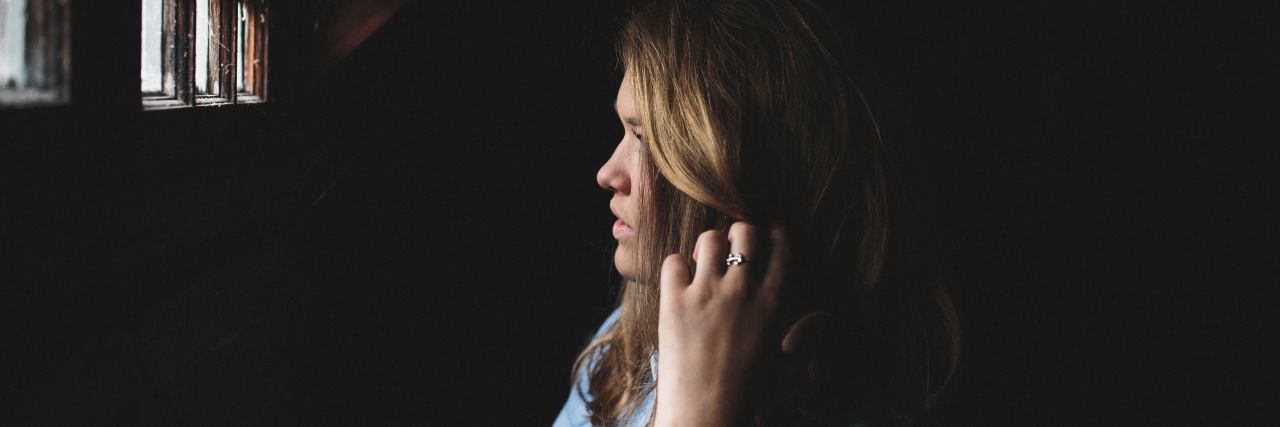Today, I don’t feel like writing. Really, I don’t feel like doing much of anything. I keep trying to tell myself that it’s OK to feel this way, but I haven’t quite started believing it yet. I’m riddled with anxiety this morning, and it feels like I’ve lost something direly important. It’s only just dawned on me that what I’m missing is someone, and that someone is me.
• What is Bipolar disorder?
As much as I try to avoid the narrative that being bipolar is like being two people at once, this is very much the case on days like this. For the past few weeks, I’d been on cloud nine. I’ve been productive and happy, which in turn made me a delight to be around. When others are able to enjoy my company, I’m more likely to enjoy my own company as well. Seeking validation from others that my experience is real is always going to be a side effect of my disorder that I struggle with the most. When that validation is given, it helps me thrive in what must be the right direction.
Now that I’ve inevitably slid back into a depressive episode, looking back on my recent accomplishments as a writer and a content creator doesn’t feel good like it should. It feels like a lucky side effect to what could only be described as yet another manic episode. Having to face the reality that every period of my life is chalked up to a phase or swing is heartbreaking and exhausting. When I’m moving along swimmingly, it’s typically due to a chemical upswing, of which the degree fluctuates. When things are feeling low (like today), it’s because the ship has capsized and I’m drowning. Typically the realization that my mental illness plays a part in everything I do wouldn’t bother me as long as I was making some sort of positive impact on the world and myself, but when it feels like I can’t maintain that level of success when things inevitably take a turn for the worse, I’m convinced I’m just lying to myself — and by extension, lying to everyone else.
Self-doubt is a massive side effect of being a severely mentally ill person who has a seemingly low need for support. Not only do I have to doubt my capability to react to the world around me like a “normal” person, but I doubt I have a valid excuse when I tumble out of a stretch of time where I did act like a functioning adult by society’s standards. When I’m on a high, I’m surrounded by people putting their best foot forward, because that’s the way society likes (all of) us to behave. “Normal” people have problems, but they don’t air them out on display for the world to see. Naturally, when I’m feeling great and problem-free, I think I’m relating to the people in my life. My mania convinces me that everyone feels that way virtually all the time.
When I swing low, I swing really low. My previous notion that everyone felt as happy as I did when I was on a high leaves me feeling incredibly isolated and left behind when my troubling thoughts return. This is one of the ways that having a mental illness really impedes on my ability to relate to others on a regular basis.
This is ultimately where that stereotype of a bipolar person being split down the middle comes into play. Waking up in the morning as someone entirely different than the person you fell asleep as has devastating psychological effects. Less than 24 hours ago, I was the person I want to be, whether it was genuine stability or influenced by a slight mania. Waking up as an anxious, depressed mess of a person in “her” wake makes me feel like I’ve been abandoned by someone I’ve grown to love very dearly.
The frustration of feeling like “I” have let “myself” down, as if they exist in two separate entities, never begins to feel “normal.” It always feels like a lover has left in the middle of the night without an explanation. I’ve always tried to explain my mental illness to others by saying it felt like someone (or something) came into your room in the middle of the night, opened the back of your skull while you were sleeping, and took out a crucial cog that makes you tick. No amount of feel good narrative or self care can fix that feeling. As a person that thrives on reaching towards recovery, I’m left feeling defeated because all I can do is sit tight, try to be kind to myself, and wait for that cog to regrow.
A healthy mindset would manifest as understanding I didn’t go anywhere; I’m still here, buried underneath the reigning “I” that is my current “me.” Both sides of the coin are a part of who I am, and no amount of feeling sorry for myself is going to change that reality. I might be mourning the sudden disappearance of my better self — I might even be angry that she left the person I am right now in her wake — but this is the nature of the beast. This is a reality that can’t be changed. The only thing I can do today is be gentle on myself and work towards making my better self proud once this storm has passed.

